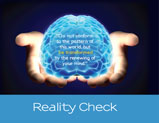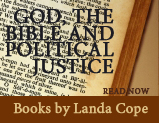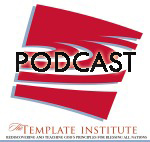上帝, “圣经”和政治正义: 章 8
部分 2: 摩西和“指令性”
章 8
民法: Formation and Form
As we left the Book of Genesis in part one, like the human race before them, Abraham’s descendents had devolved into violence. Using the only symbol of righteousness God had given, circumcision. Jacob’s sons actually use it to plunder a tribe and destroy life. This genocide of the Shecemites leads to refuge in Egypt and finally more than three hundred years of slavery. It is interesting to note that the brother they did not murder, but sold instead, is the instrument God uses to save all of their lives.
The entire Biblical history of Israel will refer back to these years of slavery where they were without political or economic justice. God will constantly remind them of these difficult times and exhort them to remember not to do the same to others in the land He will give them when He sets them free from Egyptian bondage.
Deuteronomy opens with the formation of Israel’s first civil government in the wilderness.
The Formation of Government
Moses speaks to the gathered assembly:
Deuteronomy1: 9 当时,我对你说, “You are too heavy a burden for me to carry alone. 10 耶和华你们的神已经增加了你的号码,所以说,今天你是夜空中的星星. 11 愿耶和华, 你们祖宗的神, 增加你的一千倍,祝福你,因为他已经答应! 12 但我怎么能忍受你的问题和你的负担和纠纷全部由自己? 13 Choose some wise, understanding and respected 男人 from each of your tribes, and I will set them over you.” 14 你回答我, “What you propose to do is good.”
The Authority to Govern is at the Bottom
Because Deuteronomy is the “second writing” or summation of the Law as a whole, I think we can assume that the order and emphasis of issues was intentional. It is important to remember that Israel has been in Egypt for well over 400 years and never formally governed themselves. This passage in 1:9-18 gives us a 代表, consensus, decentralized, bottom up system of governance.[1] The authority to govern a nation is in the people being governed. Practically, anyone seeking to govern a people must have some level of agreement from the people as the people, united, have the power to overthrow them. 换句话说, a government stands as long as enough people will support or tolerate it.
在 1776 Thomas Jefferson wrote: “Prudence, indeed, will dictate that Governments long established should not be changed for light and transient causes; and accordingly all experience hath shewn, that mankind are more disposed to suffer, while evils are sufferable, than to right themselves by abolishing the forms to which they are accustomed.”[2] 换句话说, until a people are willing to suffer the struggle and pain of freedom, they will suffer tyranny. Likewise, Gandhi said that the British would rule India as long as the Indians wanted them to. 换句话说, when a people are ready to be free they have the power to free themselves. Each political leader, in their own way, is reiterating what God tells us in Deuteronomy. The authority to govern and the power to make it happen are in the people being governed. The Kingdom of God builds on the authority and sovereignty of the individual.
All nations and tribes of the world had governance at the time of Moses and some had a form of rule of law. But there is a startling difference between God’s revelation of authority in Deuteronomy and all other forms of government conceived. In every political system at this point in history the power to govern was understood to be at the top.
Five Human Political Inventions
Five basic variations of political power emerge in human history. Each of these forms answer the question “who has the authority/right to rule:
1. I/We have the right to rule because we have the biggest military and we can make you obey.
2. I/We have the most money and can hire the biggest army and we can make you obey.
3. I/We have the right to rule because our father/mother ruled and they gave me the right.
4. I/We have the right to rule because god said we are to rule you.
5. I/We have the right to rule you because I/We are god.
The sixth form of government is one conceived by God. God speaks for Himself into human history and says, “You have the right to rule if the people being ruled give you that right.” Governance is in the service of and subservient to the people being governed, officials are literally “civil servants.” Governments have the authority to enforce the laws that the people have rattiefied. The people are the authority behind both the form and the content of civil law.
Individual Responsibility
Again and again in the Books of Moses the Lord pleads with Israel to remember what it was like to live as slaves, with no political or economic rights. He exhorts them to hold on to the blessing of freedom and self-rule He has secured for them. He warns them to not look to the cultures around them and copy them. Most specifically God warns them not to desire a “king.” This is not a warning against having a monarch or a political leader. This is a warning against giving away sovereign power to a monarch or political leader, 换句话说, moving power up and away from individual responsibility and local community systems. This is about putting too much power and authority in too few hands.
Like slavery, moving political power away from the people, produces dependence rather than self-reliance. It weakens the very fiber of society, which is a strong individual with a community conscience. It allows the development of a culture of the needy. “We, 人民, need the government to do this, 该, and the other for us.” It empowers the few who are easily corrupted to control the many who are difficult and slow to change but less easily corrupted in mass. It allows governance to be the problem and the solution to everything society needs. The population becomes increasingly powerless, waiting for them to fix it. It kills self-initiative and creativity and produces dependency and neediness. It ultimately destroys the image of God in the individual and makes us all think of ourselves as victims.
These values are simple to grasp but it is hard to get people to want to be responsible. The first generation of Jews in the wilderness wanted to go back to slavery. They would literally prefer to be slaves with guaranteed meals than free with responsibility. Anyone working in development will tell us motivating the people to change is the problem. This is the story God is telling us. The dilemma of nation building is to restore responsibility while maintaining freedom. This is not easy when raising a teenager to maturity let alone when trying to mature a nation.
我们, believers included, jump so quickly to faster solutions. “We will take over! We need a benevolent dictator! The people are not able to govern themselves! They are too poor, too uneducated. We will do it for them. Freedom is too messy, to violent, to chaotic! We need control!” None of these are Kingdom ideas. But they are not new ways of thinking.
We Need A King
Already in the wilderness, God understands the people will tire of local responsibility and want to move political power up, “like the nations around them.” Fallen human nature wants someone else to be responsible while at the same time wants to be significant. God in His great mercy anticipates this inevitability and lays down a criterion for a King if they are going to have one. They should at least seek God for His choice, the King should not be a foreigner, not acquire many wives, or horses. The King should not accumulate great wealth and property. He should know the Law and read it all his life. Otherwise the King along with the people will return to the ways of the nations around them. The King is not to consider himself above the law.
申命记 17:14 When you enter the land the LORD your God is giving you and have taken possession of it and settled in it, and you say, “Let us set a king over us like all the nations around us,“ 15 be sure to appoint over you a king the LORD your God chooses. He must be from among your fellow Israelites. Do not place a foreigner over you, one who is not an Israelite. 16 The king, moreover, must not acquire great numbers of horses for himself or make the people return to Egypt to get more of them, for the LORD has told you, “You are not to go back that way again.” 17 He must not take many wives, or his heart will be led astray. He must not accumulate large amounts of silver and gold. 18 When he takes the throne of his kingdom, he is to write for himself on a scroll a copy of this law, taken from that of the Levitical priests. 19 It is to be with him, and he is to read it all the days of his life so that he may learn to revere the LORD his God and follow carefully all the words of this law and these decrees 20 and not consider himself better than his fellow Israelites and turn from the law to the right or to the left. Then he and his descendants will reign a long time over his kingdom in Israel.
Of course none of the Kings of Israel will fulfill these criterion, not even those God actually indicated would be the better choice. This will become painfully clear when we look at the political history of Israel in future chapters.
“But” we say, “why? Look at Israel under David, under Solomon.” Yes, David whom God loved so much and Solomon to whom God gave wisdom to. Of all the Kings, they are truly the best, but they still did not obey God’s criterion. They had large numbers of wives and concubines, they have notorious stables full of horses and they amass great personal fortunes. Not to mention, grave personal issues.
“But” we say, “look at how well the country did under their rule? Economic prosperity, greater peace and order?” All true. Three generations of Kings did raise Israel to a development level far beyond anything achieved in the thirteen generations of Judges. But we must read on to the total destruction that the fourth King Rehoboam brings. After just four generations of Kings the deterioration Israel is amazingly rapid. They lost everything and they never recover.
The executive God intended is a loose system of tribal elders chosen by the tribe themselves, working together when there was a national crisis. When there was a national crisis there was a need for a national leader to pull all the tribes strength together. When the crisis was over, they would return to the local based federation. In a perfect world they would not have a national crisis nor need a crisis Judge, but God does not assume that in this world. He assumes falleness and sin will corrupt and crisis will arise.
Are we so busy looking at the best of the kings; we fail to see God’s labored point throughout all the kings of Israel? Is it possible that we too want to see a triumphant King arrive on a stallion and vanquish all our problems? Could it be that we too, in this age of Christianity, are disappointed by a carpenter on a donkey and the message He brings?
Why is this so important?
The Kingdom of God builds from within and on the individual. 我们, individuals created in the image of God, are where God has chosen to place authority. Anything we do to strengthen and empower the individual builds the Kingdom of God. Strong individuals need strong families, 教育, 工作, the right to earn and own and the responsibility for both. Individuals, in order to be strong, must be able to make choices and live with the consequences of those choices, learning from them, growing through them. People who are not allowed to make choices become weak and dependent. This is exactly what darkness is about… weakness and subservience. It is exactly the opposite of the Kingdom of God…freedom and responsibility.
If we are not careful we begin to see the church as a hospital, family as 的 building block, government as god, school as the parent and individuals as powerless and victims. All of which destroy the order God created.
The Great Dilemma
The great dilemma of the Kingdom of God is not control but discipleship. Getting people to make good choices willingly. We know this in evangelism. There our task is to “win” them, to bring them to the place where they are able to make a choice. The more controlling our methods of evangelism, the less effective, the less fruitful they are. God does not totally change values now because we are working in the arena of civil governance. He does not suddenly strip the individual of all authority in society. We cannot beat a society into submission and obedience.
Jesus is a King. He makes that clear when Pilot asks Him directly. “Are you the King of the Jews?” “Yes,” He responds. 但, He is not the King the Jews want. They want a King that will overpower and control while giving them power to do the same. But this is not the way the Kingdom of God is built. God is not a top down ruler.
In evangelism we see the lost as the objective, lost sheep that Jesus wants to find and save. When we move into the political area we often see the lost as the enemy, the one to be defeated. But God’s perspective does not change. They are the lost that need to see and understand true political justice. This will reveal the King to them and give them a choice.
司法
When Moses forms government in Deuteronomy one he does so because Israel has become to populated for him to judge on his own. He is following the traditional tribal system of “the chief” hearing all complaints. The people are literally lined up all day long waiting for their turn to be heard in this one-man court. What is important for us here is that Moses assumes that the most important function of governance is to arbitrate disagreements and disputes. 换句话说, justice is pursued as conflict resolution as prevention primarily and correction for “crime” secondarily.
The process was to “work it out between yourselves if you can” and if not “bring it to the courts” for arbitration rather than take the vigilante route of violence. This puts heavy emphasis on individual and community responsibility and sees the courts as a fail-safe.
If we think back to what God has emphasized in Genesis it is not difficult to see why this is so important. The history of a fallen human race proves that humans, left to work out arguments by themselves, escalate rapidly into violence and mob law as a means. Social order becomes survival of the fittest and violent crime the norm. The sacredness of life is degraded and human life rapidly loses its value. God is moving us toward community responsibility for the individual and individual responsibility for the community where we become mutually responsible to carry the burden for justice at the most basic level of society. What is emphasized is that the legal system must be able to efficiently handle internal disputes.
Resolve Disputes
Resolution of disputes is the primary objective of the courts in Scripture. This means finding guilt or innocence based on established law but it goes beyond that to arbitration of grievances. The objective goes beyond due process and seeks community harmony, part of the true meaning of the word shalom. This makes sense of why the judicial representation went from Judges of a thousand all the way down to one judge in every ten people. The form of the Biblical judicial system was created to adapt to the population of the people and was resolution and service driven.
As small as they were in the wilderness, each tribe in Israel at the time numbered more than 100,000 人. That means in a village of 100 people there would have been 10 judges. They were mandated to have judges in every town. Clearly it was a simple matter to get a hold of someone to help with daily grievances before they escalated into violence. And perhaps that is part of God’s point. Create a system that deals with disputes before a crime is involved. This would echo with Paul’s instructions to the Body of Christ to deal with disputes in the church before the courts are needed.
This means the injunction to take grievances to court is very practical:
申命记 25: 1 When people have a dispute, they are to take it to court and the judges will decide the case, 无罪无辜,并谴责有罪. You could follow due process.
Why the severity of the death penalty for contempt of due process in Deuteronomy 17:12? 任何人谁蔑视法官或牧师服侍谁站在那里向耶和华你的神是被处死. Because, disregarding due process would lead to violence and the degration of human life, not only in the one case but also ultimately on a much larger community scale.
Arbitration, rule of law and due process are essential to protect the sacredness of life. When we take justice into our own hands we begin devolving back into the violence of Genesis. Due process to serve the needs of the community must be easily accessible. And to be accessible it must be community based.
Appeals Process
在申命记 17:8-13 the courts are instructed to create a system of appeals for all accusations. The passage stipulates that all legal matters whether “bloodshed” “lawsuit” or “assaults” are to be resolved. If someone could not get satisfaction at one level of the judicial process then they appealed a higher judge. In under Moses there were three levels, judges of 10, 100 和 10,000, before you could appeal to the national leader. If you could not get satisfaction at any level of the judicial system the final appeal went to the High Priest of the day.
The point here is we must find a legal resolution to any dispute. If we cannot we must appeal to God for His finding. And these findings must be binding. 为什么, because they are perfect? Or because, as imperfect as they may be, rule of Law is the only way to keep humanity from devolving into genocide? We are not seeking perfection. We are seeking resolution that is impartial and uses all the evidence available. We are seeking the best outcome possible.
Impartial
Deuteronomy also gives us a definition of “impartial.” Chapter one instructs the judge to judge fairly and then goes on to define “fairly” as “impartial” meaning taking no regard for the status of the defendant whether Jew or foreigner, 男人或女人, high or low standing in the community. 换句话说, seeing the defendants as “equal” before God and the court. How might this “impartiality” be corrupted? All four passages contribute; they list intimidation of the judge, bribery of the judge, twisting the meaning of words and ignoring evidence.
The cure to this perverting of “justice” is to see the Judge, the courts and the process accountable to God. 但, what sort of god are we talking about? We are talking about the God whose words always mean what they say. The God who made the material world that is real and can be known and gives evidence. The God, who tells us we either saw it, heard it or we did not and our words must match the reality of our information or lack of it. We are talking about the God who does not value human life based on nationality, social status or any other criterion, including a king. We are talking about the God who considers the value of every individual equal and therefore without partiality.
章 25 goes on to define “fairly” as closure to a case and a finding of quilt or innocence. “Fairly” means that the finding is following the prescribed sentence for whomever is found guilty and that the prescribed sentence for the crime does not supersede “human integrity” for the guilty. “Fairly” also means that the sentence is actually carried out, not given and then ignored. The Biblical definition of a “fair trial” includes complete closure and implementation of the full sentence, no matter who you are.
The Measurement
The measurement of a judicial systems impartiality and fairness is clear throughout Scripture. We measure the success of our judicial system by the quality of justice we deliver to the poorest of the poor, the bottom of the social ladder, the outcast, the powerless…what Scripture describes as “the widow, the orphan, the alien.” In other words, God judges our political justice based on the justice we demand for the least in our societies. The level of justice we will accept for the outcast or the disgusting is the level of justice God will attribute to us as a society. The New Testament continues the value with the injunction to do to others, no matter who they are, what we would have we would have them do to us. In this sense then, “justice” is measured by what we are “giving” as much, if not more so than by what we are “getting.”
Once the judicial system is established in the wilderness, God begins to reveal the legislative instructions of the Law. One of the earliest and most emphasized legislative decrees is for the formation of cities of refuge throughout Israel. The accused were to be protected until due process is procured. Vigilantism is still breathing down the necks of tribal Israel.
The next justice issue that Deuteronomy and the books of the Law focus on is the issue of land distribution and ownership.
Key passages for chapter 7:
申命记 1:15-18, 16:18-20, 17:8-13 和 25:1-3
[1] Readers may find it helpful to refer back to 旧约模板: 介绍, chapter 6, pages 47-61 for the overview of governance in Scripture. Available on line.
[2] Declaration of Independence, 1776







